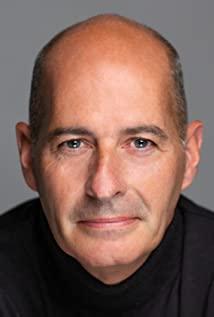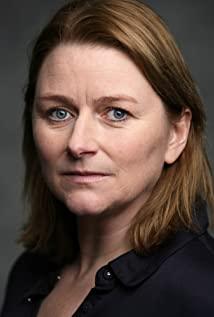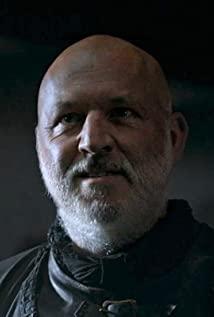It's been a long time since I've written anything. After watching the movie, my mind is quite empty, and I only remember the boy, the same song at the bedside and at the party, "So you fell in love with him?" "He's just a cute boy" "what do you want from me".
First of all, to be honest, I am not satisfied with the ending of the movie. I always feel that the judge's laugh is very out of place, and even makes me start to doubt that my understanding of the whole drama is very different from what the director wants to express.
I've always thought that what I remember is a reflection of my understanding of the film as a whole. To be honest, in the previous part, whether it was the exaggeration of the conjoined baby case at the beginning or the quarrel between husband and wife, I thought it was good, but it was completely expected, including the joke about the lawyer, the scene of flipping over the plate to reach the phone, It's all shaping and setting up until the boy appears, or more accurately, Adam said to Fiona after he was cured and discharged from the hospital, "The law stipulates that for minors, the hospital has the right to use its own treatment methods, you don't have to come. Look at me". At the moment, I don't know the law, so at the beginning of the court, there was a period of time when I got into it, and it was really heart-wrenching and angry. (Because I don’t believe in religion, I would think that the director wanted to express some of his views on religion and so-called true knowledge through this case, but I think his main point is to use this as a foreshadowing, so that the boy’s final “My My choice" is more meaningful and impactful.)
After he finished this sentence, he asked Fiona: "What do you want from me?" Contact the front's description of her twenty years of work status and her recent family situation. Personally, I think it is better to communicate with Adam. It is out of a hope for a short-term relief. It was an unusual move, as can be seen in the expressions and expressions of other court participants.
When he actually came to the hospital bed, the camera fell on Adam's bloodless face, and then turned to a close-up display of Fiona's eyes. Suddenly, two details were connected at this time: one was that Fiona asked her husband, "Is it because of me?" Didn't I give you a child?" And Fiona irritably complained about the assistant, "It's always that boy, that boy, doesn't he have his own name?" Fiona has a special feeling for children, and she longs for a pure beauty The nourishment of this kind of feeling maybe she didn't realize, so she paved the way for her feelings for Adam to become complicated later. When she walked off the court, she unconsciously completed a subtle transformation of her identity. On the stage, she was rational and cold, but off the stage, she was first and foremost a woman, and it was her who rekindled Adam's desire for life and beauty. Deliberate, and so that kind of deliberation leads to what I think is the theme of the film: reflection on saving lives.
A song, a figure, replaced Adam's past religious beliefs, allowing him to shift his hope from illusory to a concrete image. In the past, he believed in God. I think this concept still hasn't changed. It's just that he regards Fiona as a God in his mind. However, it is precisely the more concrete the belief is, the easier it is to be disappointed, doubt and even despair. Fiona did not take the responsibility of an extradition well. She was frightened. In fact, her heart was filled with sweetness and even happiness, and her long-term emotions were over-repressed. One of the results was that she could not distinguish various sudden emotions. go. What she longed for was her husband's understanding, the reunion of love and the warmth of the family, and what Adam gave her was a kind of adoration, admiration, and gratitude, but she confused the two and didn't realize that Adam was actually putting The hope of life was pinned on her, and she did not guide Adam in the direction of life. At the same time, Adam is too naive and naive, and he can't completely distinguish between his emotions and true love, so he follows Fiona all the way, even kissing her when he is forced to leave.
It is doomed to be a tragedy for two people who can't distinguish their emotions but are surrounded by such a grand theme of life. On the night when Adam was dying, Fiona dug out the poem and read the last sentence. Her heart was full of remorse and self-blame. She finally realized that her feelings for Adam were more of a desire for pure beauty, so when she became a husband Asked "So you fell in love with him?", she covered her face and wept: "He's just a cute boy"; however, Adam intervened because he wanted a short-term relief, leaving the meaning of life so unanswered The problem is pinned on themselves, and all along, they have more or less regarded these two emotions as love for each other.
In the end, Adam died, but Fiona's expression in black was very relaxed, and the last scene was talking and laughing with her husband along the path between the countless tombstones to the distance. I guess the director wanted to express: because of Adam’s case, the tender and warm part of Fiona’s emotions was awakened, she broke free from the long-term invisible bondage of her identity as a judge on her personal emotions, so she was able to reunite with her husband and let her go outside the courtroom. The family is no longer icy.
But since so many of Adam's psychological changes before and after the two hospitalizations and Fiona's psychological changes have been portrayed intentionally or unintentionally, why should we abandon such an in-depth theme and simply put the "Judge" as the next best thing? As the central character of the whole movie? Personally, I think this emotional contradiction and confusion between Adam and Fiona, combined with the true meaning of saving lives, will make the film's connotation even more shocking.
View more about The Children Act reviews











